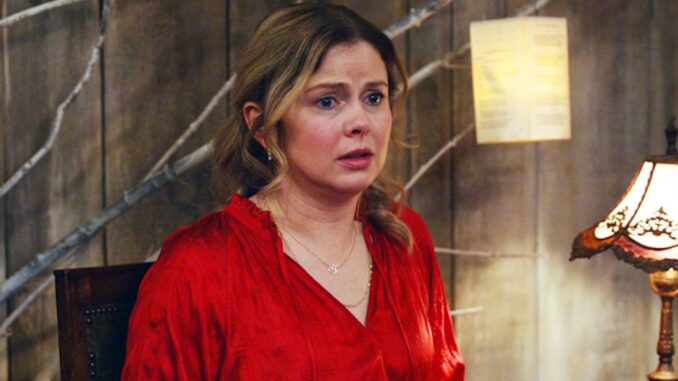
Beyond the Boundaries: Why Ghosts Season 5 Needs to Exorcise its Annoying Trope
"Ghosts," the delightful BBC-turned-CBS sitcom, has charmed audiences with its quirky humor, endearing characters, and heartwarming exploration of life, death, and everything in between. The premise, a young couple inheriting a haunted (and dilapidated) mansion inhabited by a motley crew of spirits spanning centuries, is ripe with comedic and dramatic potential. Yet, as the show progresses, a specific trope has begun to feel less like a charming quirk and more like a frustrating shackle: the near-miss revelation of the ghosts to the outside world, followed by a contrived reset. Season 5 needs to break free from this cycle and explore more compelling narrative avenues, allowing the show to truly evolve and avoid stagnating in a predictable pattern.
The allure of this trope is understandable. It fuels dramatic tension, creating moments where the audience holds its breath, anticipating the chaos that would ensue if someone other than Sam were to discover the ghostly residents of Button House. We've seen variations of this scenario played out countless times. A child seemingly looking directly at a ghost, a dog barking incessantly at an unseen presence, a misinterpreted conversation that teases the possibility of exposure – these moments are designed to ramp up the stakes and remind us of the precarious secret that Sam and Jay are guarding.
However, this formula, repeated season after season, has become predictable and, ultimately, frustrating. Each time, the show builds anticipation only to pull the rug out from under us with a hastily constructed explanation or a convenient misunderstanding. The child's gaze is directed at a moth, the dog is barking at squirrels, and the conversation is twisted to fit a plausible, ghost-free narrative. This cyclical pattern creates a sense of artificial tension, a narrative tease that never delivers on its promise. It feels like the writers are afraid to commit to a significant shift in the status quo, opting instead for the comfortable familiarity of the reset button.
The consequences of clinging to this trope are detrimental to the show's overall growth. Firstly, it limits character development. Sam, in particular, becomes defined by her role as the gatekeeper of the spectral secret. Her actions and decisions are perpetually dictated by the need to maintain the illusion, preventing her from fully engaging with the outside world and exploring other facets of her personality. Jay, too, is relegated to a supportive role, often acting as the voice of reason and grounding force in the face of the ghostly shenanigans. While their dynamic is endearing, it risks becoming static without more substantive challenges.
Secondly, the trope prevents the ghosts themselves from evolving. They remain confined to Button House, their interactions primarily limited to Sam and each other. The potential for them to learn about the modern world, influence it, or even find closure and move on, is stifled by the need to maintain the secret. While the show has occasionally touched upon these themes, it has done so cautiously, always retreating to the safety of the established narrative.
So, what can "Ghosts" Season 5 do to break free from this repetitive cycle? The answer lies in embracing risk and exploring new narrative avenues. Perhaps the show could finally commit to a partial or full revelation of the ghosts to a select group of people. Imagine the comedic possibilities of a nosy neighbor, a skeptical historian, or even a rival innkeeper learning the truth about Button House. This would open up a wealth of storylines, forcing Sam and Jay to navigate new challenges and forging unexpected alliances.
Alternatively, the show could shift the focus away from the external threat of exposure and delve deeper into the internal lives of the ghosts. Exploring their pasts, their regrets, and their unfulfilled desires could lead to more emotionally resonant storylines. Perhaps one of the ghosts could find a way to communicate with a living relative, or finally resolve a centuries-old conflict. These internal conflicts, divorced from the pressure of maintaining the secret, could provide a richer and more nuanced exploration of the show's themes of life, death, and connection.
Ultimately, "Ghosts" possesses the potential to be more than just a charming sitcom. It has the ability to explore profound themes with wit, heart, and genuine emotional depth. By shedding its reliance on the tired trope of near-miss revelations, Season 5 can allow the characters to evolve, the storylines to deepen, and the show to reach its full comedic and dramatic potential. It's time for "Ghosts" to exorcise its most annoying demon and embrace a bolder, more innovative future. Only then can it truly haunt us with its brilliance.
